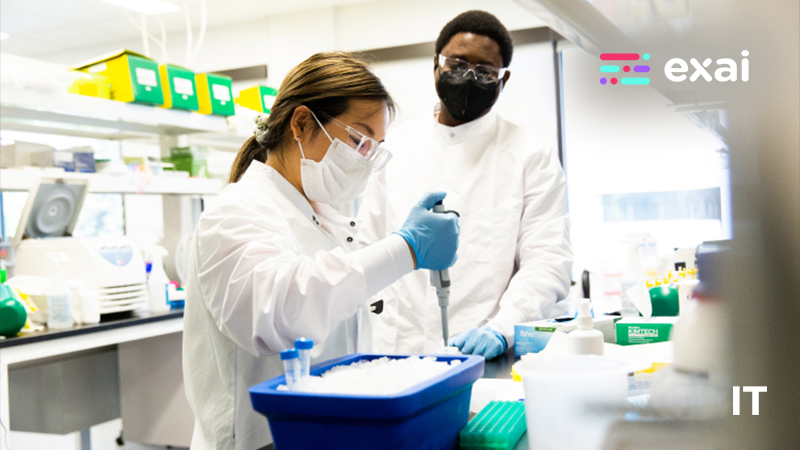Exai Bio announced non-small cell lung cancer (NSCLC) data further validating that its novel RNA- and generative AI-based liquid biopsy platform detected early-stage disease with high accuracy. The study of nearly 900 subjects demonstrated stage I sensitivity was 95% at 90% specificity. The use of Exai’s proprietary generative AI technology, derived from large independent datasets of tumor and blood samples, enhanced both sensitivity and specificity beyond what is achievable using standard machine learning techniques. The high detection of stage I tumors could have major clinical implications to enable earlier disease detection at initial diagnosis as well as molecular residual disease (MRD) monitoring.
study also revealed the platform’s novel capability to subtype cancer biology using a routine blood draw. In a pilot sub-study including 100 NSCLC patients, cell-free RNA patterns were used to distinguish adenocarcinoma from squamous cell carcinoma. The accuracy of Exai’s prediction was equivalent to tissue subtyping, highlighting the potential to use a blood-based test in lieu of or in conjunction with surgical pathology. Beyond this initial technology demonstration, Exai’s platform enables further novel insights into cancer transcriptional activity for clinical monitoring as well as in accelerating drug development programs for the biopharmaceutical industry. These results will be presented at the 2023 World Conference on Lung Cancer (WCLC).
“Earlier lung cancer detection could lead to better treatment options and improved outcomes, however, finding small tumors and early-stage disease is still a major clinical challenge,” stated Sandip Patel, Professor, Medical Oncology, University of California, San Diego. “Blood-based tests for the accurate and sensitive detection of lung cancer could significantly improve patient care, especially as new therapies are utilized in the neoadjuvant and adjuvant setting for treating non-small cell lung cancer.”
“Over the past year, Exai has generated compelling evidence demonstrating that our innovative liquid biopsy platform can detect cancer at the earliest stages and shed insights into cancer biology,” stated Pat Arensdorf, CEO of Exai Bio. “Based on strong results across multiple studies, we are actively developing a range of blood tests that aim to detect, define and monitor cancer at the earliest actionable stage for patients.”
Exai’s platform uses the latest next generation sequencing techniques to generate a comprehensive profile of cell-free RNA and identify a novel category of cancer-associated, small non-coding RNAs, termed orphan non-coding RNAs (oncRNAs). OncRNAs are transcribed and actively secreted from cancer cells and are stable and abundant in the blood of cancer patients. Exai has created a catalog of hundreds of thousands of oncRNAs and tens of thousands of patient oncRNA profiles, spanning all major cancer subtypes. When combined with Exai’s proprietary artificial intelligence, this unique platform has several scientific and practical advantages over tests that focus on circulating tumor DNA (ctDNA) including sensitivity, specificity, and informative properties for active cancer biology.
Exai’s universal platform can be used across multiple cancer care settings such as screening and early detection, monitoring, molecular residual disease and therapy selection.
SOURCE: Businesswire

































